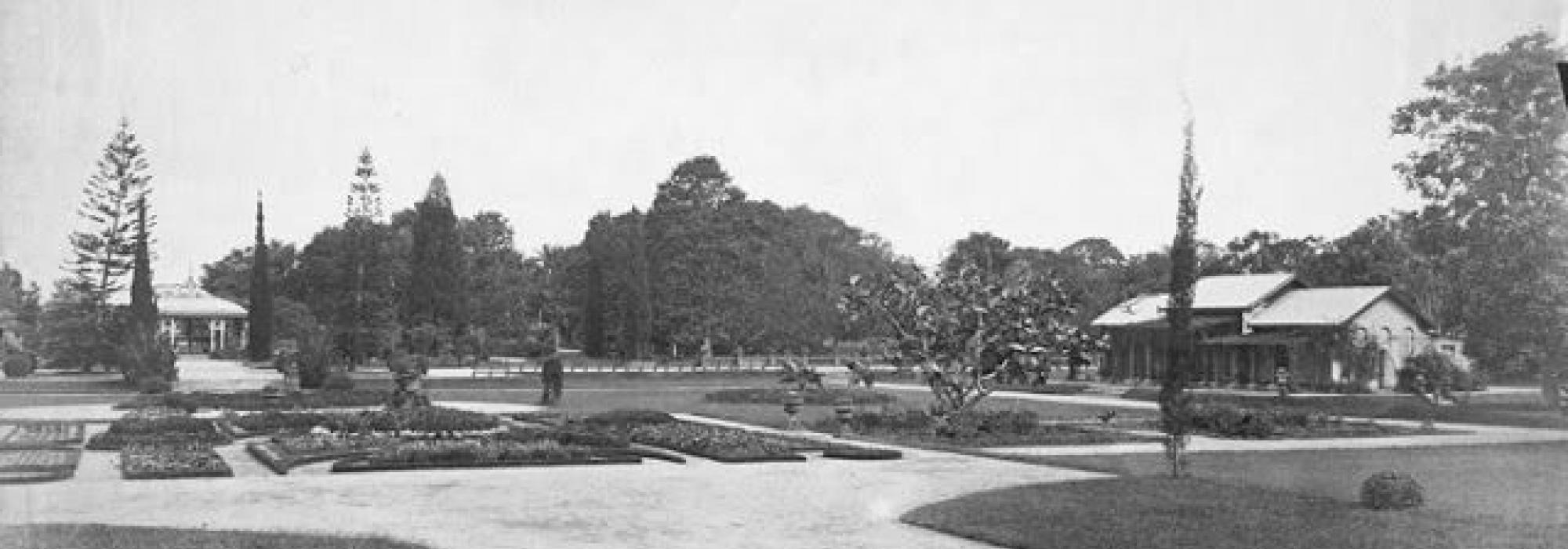Shivaswami Iyer was a Sanskrit scholar. V Krishnaswami Iyer was his friend, colleague, and sometimes an opponent in his profession as a lawyer. Krishnaswami Iyer founded a Saṃskṛta Mahāpāṭhaśālā in Mylapore, Madras and also established a medical school called Venkataramana Ayurvedic Dispensary. He too was a great scholar of Sanskrit and had compiled a Sanskrit work called Ārya-caritam. When he had to appoint new faculty for his Sanskrit college or when he had to take a call on the credibility of other scholars, he consulted Shivaswami Iyer without fail, transferring the entire responsibility to him. He was assured of the depth of Shivaswami Iyer’s scholarship and his objective outlook.
Reverence for Tradition
Shivaswami Iyer never gave up his adherence to traditional customs even when he rose to the post of Governor. When he was given an opportunity to go abroad for official work, he rejected the proposal because he did not want to hurt his mother’s sentiments. A year after his mother passed away, he went on a tour to Europe. He performed the Sandhyāvandana meticulously even when he was travelling and was away from his homeland. During his old age, even when his health was delicate, he would take a daily bath like a ritual, smear vibhūti over his body, and seat himself behind a round table. He never failed in performing the Sandhyāvandanam. Every night, at around nine, he read through and recited the Bhāgavata – it was a text that was very dear to him.
Bhāgavata is a hard nut to crack and to digest. It was a great source of delight for Shivaswami Iyer to decipher the challenging portions of the text. He would explain why a ‘ghuñ’ was used here and why a ‘kvip’ there.[1] Why is an auṇādi brought in here?[2] – he would try answer such difficult questions. He did not put his scholarship into use only for decoding such knotty constructions and it was out of his great devotion to the work that he took up such endeavours.
Once he asked me to read out loud the story of Rāma from the Bhāgavata. I was a bit audacious and asked him, “Why do you want me to read it out? To make you cry?”
Shivaswami Iyer said, “O fool! You know how touching the story is! You know how great a work of art it is!”
Adherence to Norms
One day, Srinivasa Shastri, Ventakarama Shastri, and their group of about eight friends, that included me, was heading towards Lal Bagh for our usual get-together. We were walking along the street on which Dr. B K Narayana Rao’s eye hospital was situated. When we had walked some distance, we saw Shivaswami Iyer going towards Lal Bagh in his car, going on the lane in front of Dr. Narayana Rao’s house. He stopped his car when he saw us and came walking towards our group. Shastri whispered to us, “Oops! He’s coming in this direction!” Before he finished his last word, Shivaswami Iyer had already come near us. He exchanged pleasantries with the group and then he looked at me with piercing eyes – from head to the toe. I thought there was some disaster in store for me. However, Shivaswami Iyer did not speak a word.
We went ahead by a couple of steps. He again looked at me from head to toe. We still went further ahead without speaking a word. Shivaswami Iyer looked at me for a third time and asked me in Tamil, “Why aren’t you wearing a kacche?”
I said, “I always wear it. Today, for some reason, I just wrapped the dhoti around me and stepped out.”
I was lucky that day; Shivaswami Iyer did not probe further. He seemed to have accepted my excuse.
Srinivasa Shastri looked at me and said, “Phew! We’re indeed blessed! But you did not argue with him nor did you pose a counter question like: What is wrong in just wrapping a dhoti around myself?” I then narrated the incident connected with Venkatarama Shastri and remarked, “Do you think I’m such a crooked person?”
Shivaswami Iyer always wanted things to be as they were meant to me. He would not tolerate any deviation from the norm.
Terms and Conditions
Once Shivaswami Iyer told me in a tone of finality, “There is a work that you must read. It is written by Mr. and Ms. Sidney Webb. They are sociologists and have authored a two-volume book titled The New Civilization. I can let you borrow the book if you want, but under four conditions –
1. You should not pass on the book to anyone else; it should come back to me, directly.
2. You must not open the book too wide.
3. Before you close the book after reading it, you must clear off the dust that might have got accumulated on the pages.
4. You should not make notes on the margins or in any other part of the book.”
He strictly adhered to these aspects himself. If someone visited him when he was going through a book, he would gently wipe off the pages of the book with his soft handkerchief, place a book-mark and carefully close the book. Whenever he went through a book, he had a pencil and paper at hand. He would make his notes on this paper and would never spoil the pages of the book.
Shivaswami Iyer always abided by rules and norms he had set for himself. He was a disciplinarian. He wouldn’t let a person come to him if he knew that the person was lacking in discipline or hygiene. Shivaswami Iyer was called stingy by some. However, only those who did not know him intimately considered him to be parsimonious. The reason behind him being labelled thus was that his name was never found in any of the donor lists. A cursory glance suggested that he never donated to any dhārmic causes. My opinion changed when I came to know the reality.
Family
Shivaswami Iyer once stayed in the bungalow in front of Karaṇikara Pāṭhaśālā. There I saw a teacher tutoring a small girl in Sanskrit. I asked Srinivasa Shastri who was with me, “Who do you think the child is? Shivaswami Iyer does not have children, right?”
Shastri said, “Don’t you know? She must be Gopalan’s daughter. Gopala Iyer was the caretaker of his house. Wherever Shivaswami Iyer went, Gopala Iyer was to accompany him along with his own family. Doreswamy Shastri, the tutor, and his family; his driver and his family – all these people had to accompany Shivaswami Iyer in all his travels and they were very much a part of his family. He would take care of boarding and lodging of all the people. This was his practise. He did not want his people to suffer from the lack of anything. He would be happy if they were all happy.”
One year later, when I visited Shivaswami Iyer, he called the little girl and told me, “This girl has cleared the exam. She has learnt Kannada and is now learning Sanskrit. I’m looking for a suitable bridegroom for her. If you know of anyone, please let me know. I’ve got some gold and silver ornaments prepared for the girl. Her father will perform the kanyādāna as per our tradition.”
Along with the seamless flow of his words of praise, a few drops of tears seemed to wet his eyes too.
As a Host
If Shivaswami Iyer had invited someone as a guest to his house, he would take care of all the needs of the person from the time he got off the train until the time he boarded a return train. In the room in which the guest stayed, Shivaswami Iyer had a few postage covers with stamps stuck on them and also a few postcards. He made sure that the guest did not have to face any trouble looking for essentials. A car was reserved for his use. As soon as the guest sat in the car, Shivaswami Iyer’s personal assistant would occupy the seat next to the driver. He would go around with him, wherever the guest desired to go. The assistant would make a note of any purchases that the guest would make while going around the city. Shivaswami Iyer would pay off the bills.
The guest’s ticket for the return journey was bought by the assistant and he would slowly slide it down the guest’s pocket without letting anyone notice it. Shivaswami Iyer always wanted to be discreet in the services and hospitality he had rendered on his people.
To be continued…
This is the first essay in D V Gundappa’s magnum-opus Jnapakachitrashaale (Volume 6) – Halavaru Sarvajanikaru. Thanks to Hari Ravikumar for his edits.
Footnotes
[1] ‘Ghuñ’ and ‘kvip’ are ‘pratyayas’ in Sanskrit that add on to word-roots to produce meaningful words.
[2] Auṇādi is another technical term in Sanskrit grammar.















































